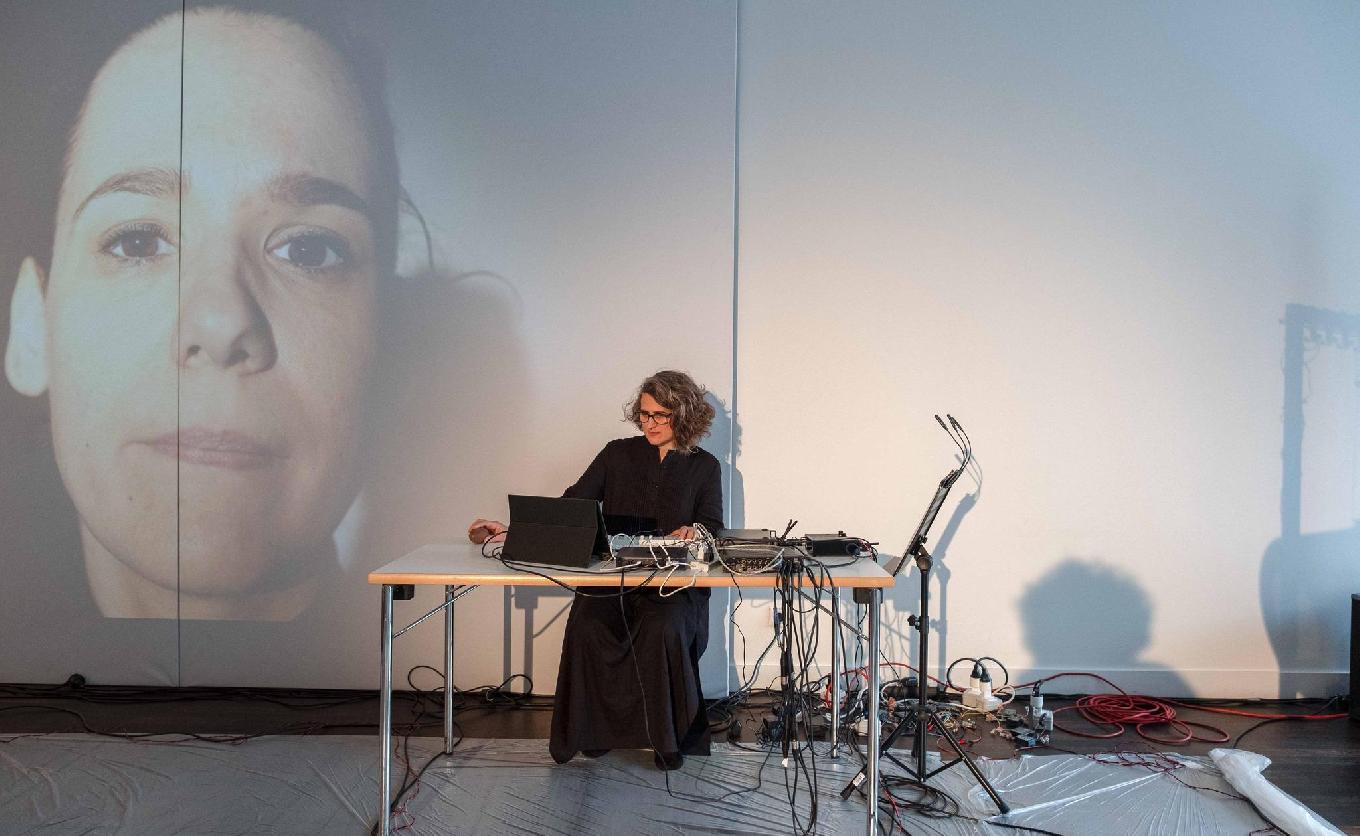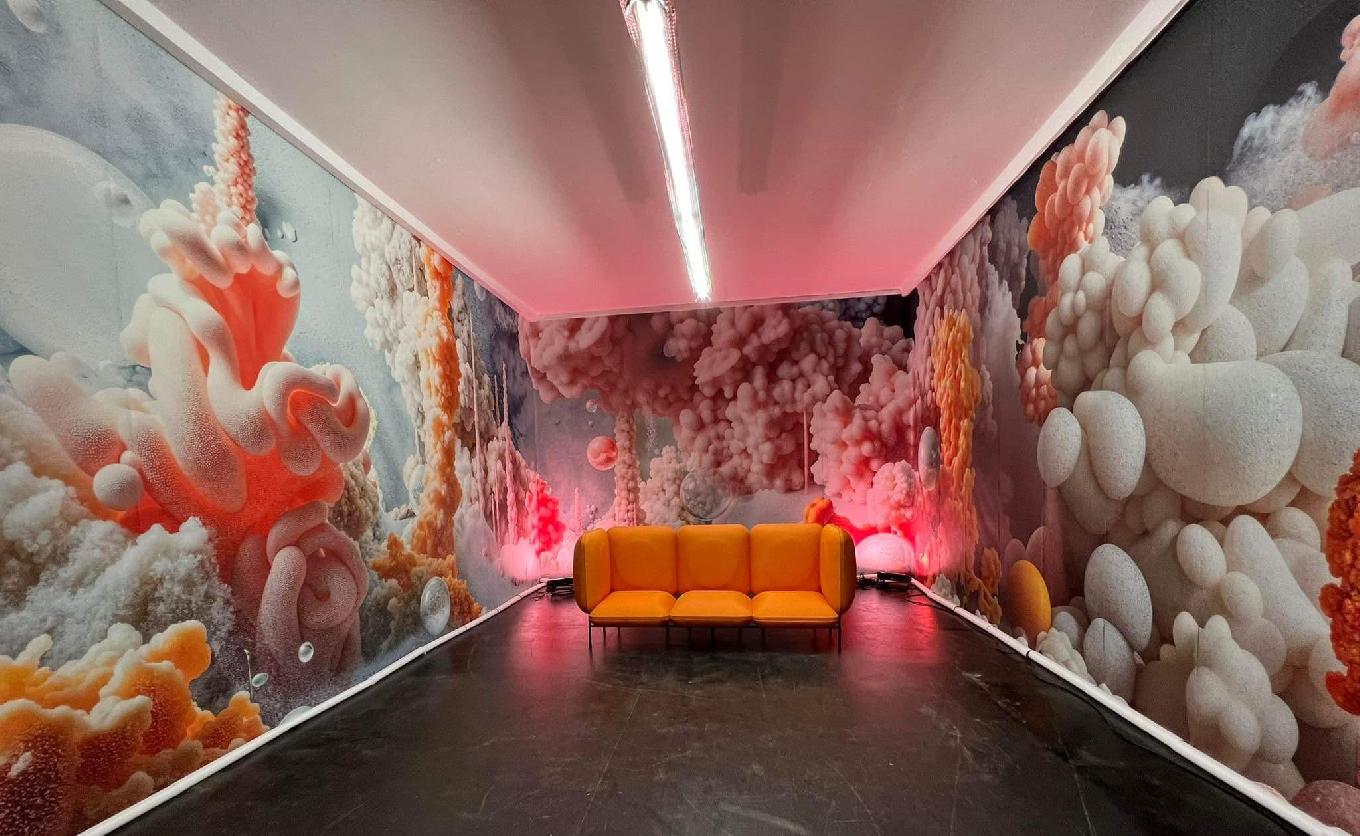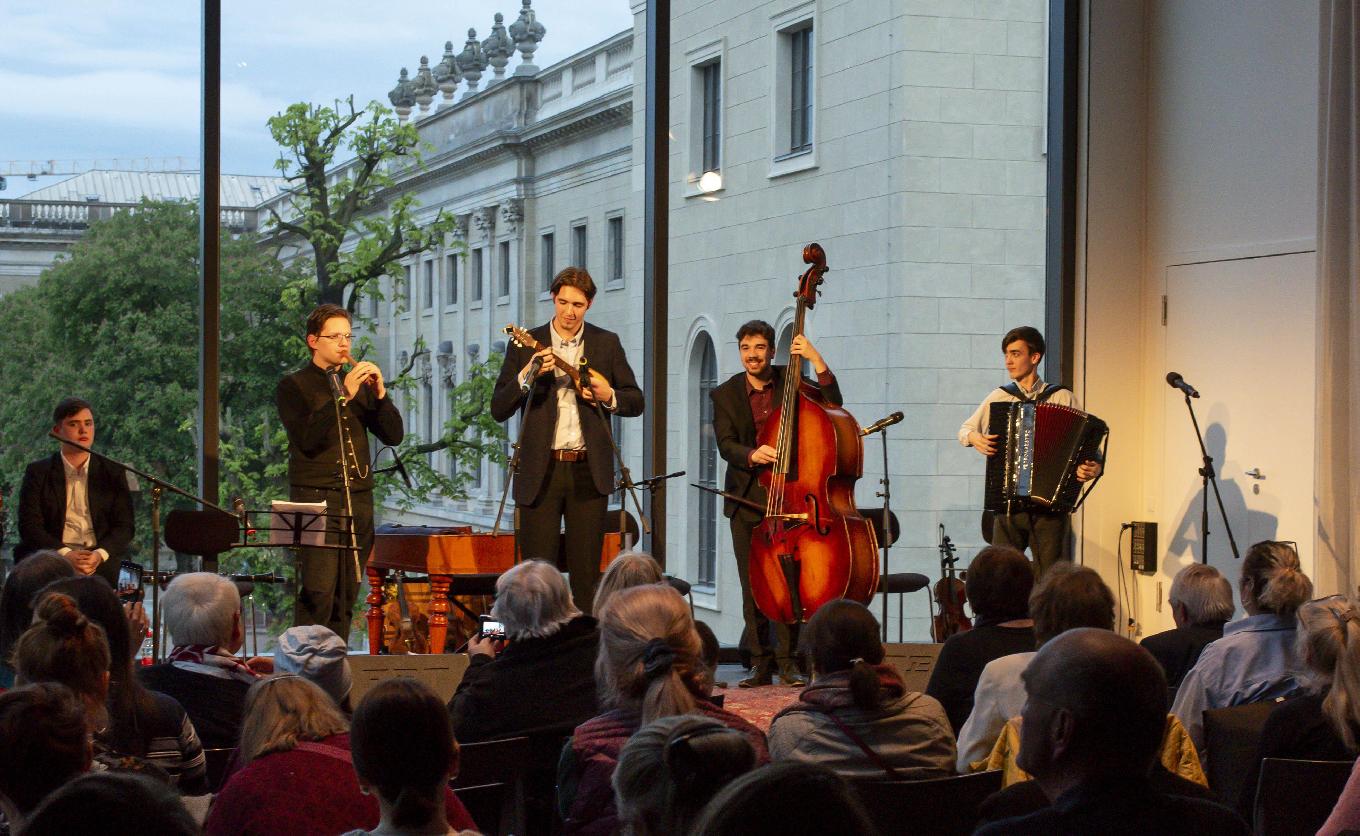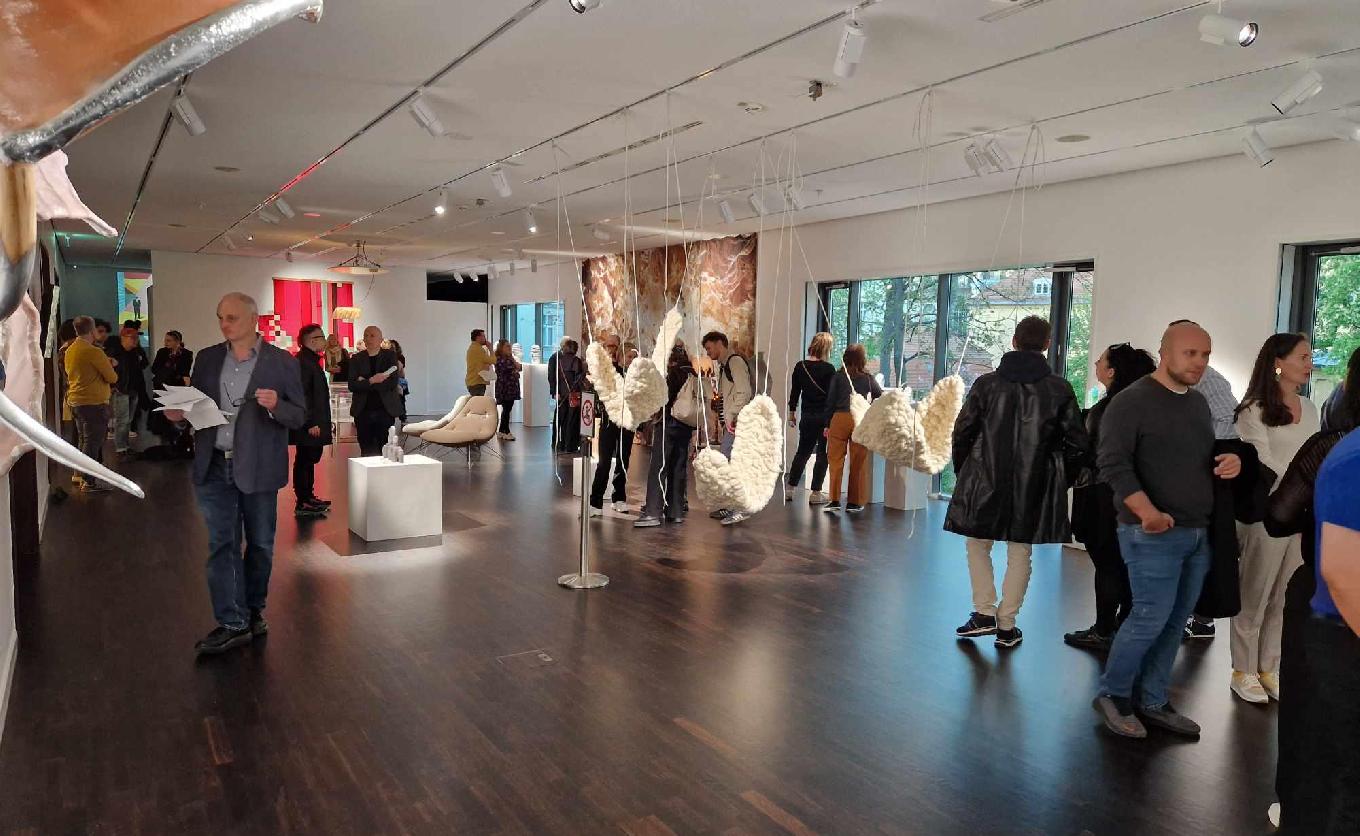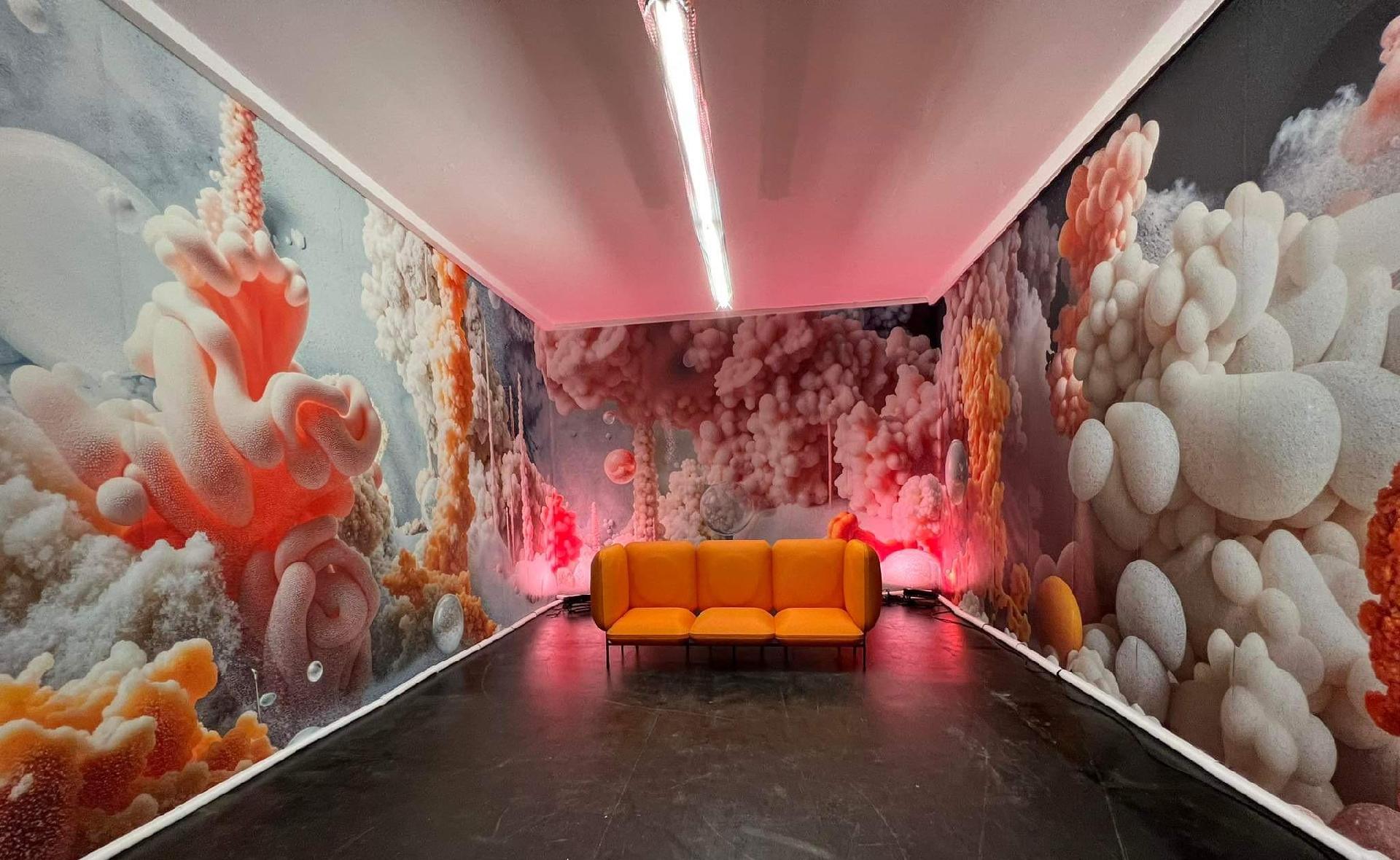
Contemporary and traditional art and design in Berlin
The Collegium Hungaricum Berlin welcomes the audience of the German capital with meaningful and exciting Hungarian art programs in spring 2024. Within the framework of their exhibition titled "Inner Space," 20 contemporary Hungarian visual artists' works are presented to the interested visitors. Through their project called "Electric Jungle," they draw attention to the social status of women and the issue of gender equality, highlighting the work of poet and performance artist Kinga Tóth. They assisted in the presentation of Hungarian artists at the Berlin Design Week festival and organized a literary translation workshop. Additionally, the institute introduced the newly formed Hajnalfa ensemble, consisting of young folk musicians, and held dance workshops for adults and children.
The design exhibition titled "Inner Space," created based on their own concept adapted to the Berlin environment, fills the first-floor exhibition space of Collegium Hungaricum Berlin with unique artworks. Going beyond form and function, the exhibition explores the psyche and emotional state encoded in the designers' objects and their impact on the user's mood. The opening ceremony on 11 April, 2024, was greeted by Dr. Márta Nagy, the director of the institute, followed by an introductory speech by curator Eszter Bolgár, which inaugurated the exhibition showcasing the works of 20 contemporary Hungarian visual artists, widely promoted in connection with the Berlin Design Week. The exhibition has garnered significant interest from the young Berlin audience due to its exciting theme. Artificial intelligence also played a role in the creation of the freeform collective and Dávid Szauder's large-scale and spectacular artworks. The opening event lasted for about three hours and attracted over 100 visitors.
The Hajnalfa ensemble, comprised of young folk musicians studying at the Liszt Academy of Music in Budapest, presented the diversity of our Central European heritage and the Carpathian Basin folk music on 19 April, 2024, at the Collegium Hungaricum Berlin. Their concert featured the archaic style of Hungarian folk music, the contemporary playing style of urban Gypsy musicians, as well as Romanian and South Slavic music. The diversity of regions and eras was accompanied by a variety of instruments, including cimbalom, tárogató, clarinet, bagpipe, flute, tambura, ütőgardon , accordion, and, of course, violin, viola, and double bass. The feedback once again confirmed that not only the Hungarian diaspora but also the German and international audience in Berlin are receptive to Carpathian Basin folk music.
The artistic exploration of women's social status and gender equality is an important topic worldwide. Hungarian poet and performance artist Kinga Tóth, who is in Berlin with a DAAD artist scholarship in 2024, focuses on this theme in her current work as part of the "Women in Focus" project at Collegium Hungaricum Berlin. Based on the ballad "The Wife of Mason Kelemen (Kőmíves Kelemenné)," she created a site-specific installation in CH Berlin, together with composer Silvia Rosani. Visitors to their multimedia installation can navigate through a stylized house controlled by an application. The opening performance of the installation combined movement, poetry, and music to explore the position of women in 21st-century society. The international audience filled the space of the installation. The program can be seen in the institute's Breuer Room until 9 May, 2024.
EUNIC Berlin, the network of European cultural institutes in Berlin, and the Berlin Design Week present the exhibition titled "NEXT. Young European Design" from 27 April to 26 May. NEXT showcases young European creators who experiment with forward-looking and sustainable design concepts. The curator of the exhibition is Alexandra Klatt, the founder and director of Berlin Design Week, who, together with the EUNIC board, selected the featured works. Among the four Hungarian products, the Thermosphere wallpaper has its own space as an immersive installation at the main venue of Design Week, the Peter-Behrens-Bau. The other works were exhibited at the Museum of Decorative Arts. The featured Hungarian artists were Ádám Miklósi, Gábor Bakos (Concrazy), and Bence Ádám Kiss (DBE Furniture).
On 27 April, the Hungarian-German translation circle operating at Collegium Hungaricum Berlin, led by Heike Flemming, analyzed the peculiarities of Hungarian-German narrative and speech forms through the example of László Krasznahorkai's novel "Herscht 07769."
The Hungarian cultural programs have received great recognition and appreciation in Berlin.

